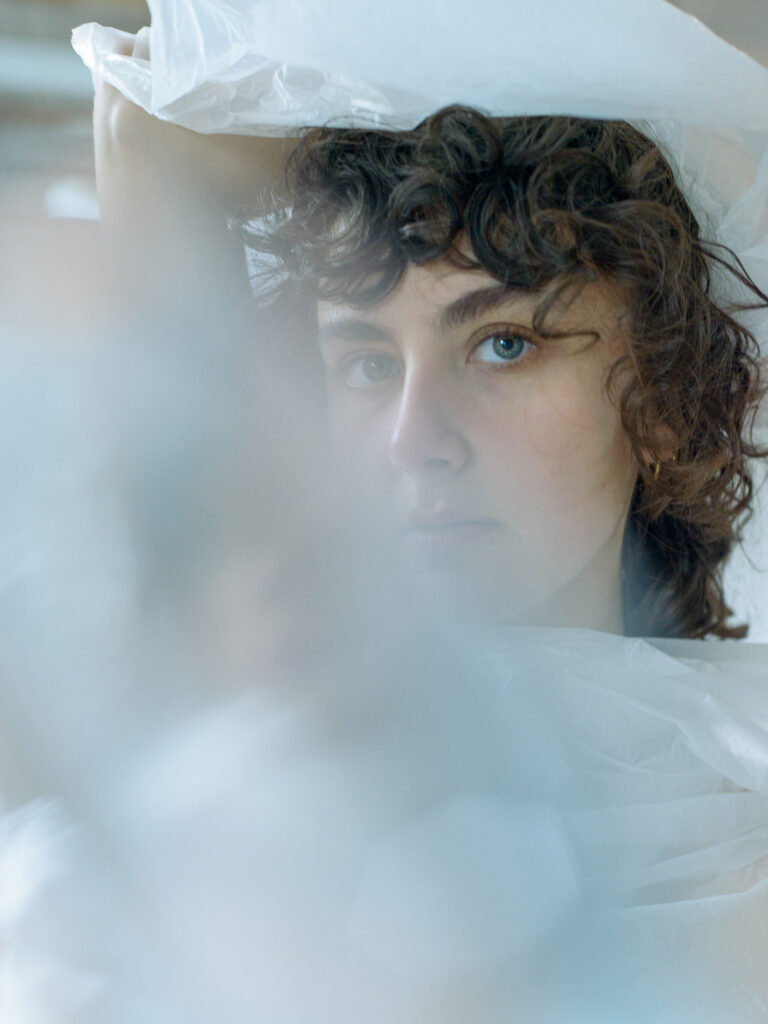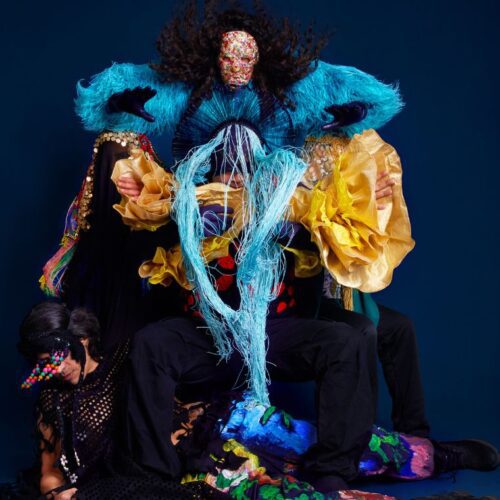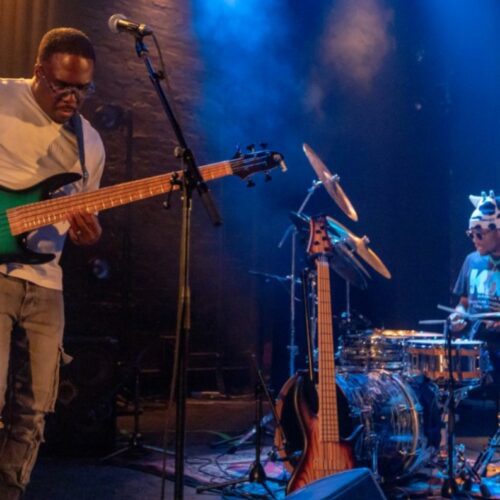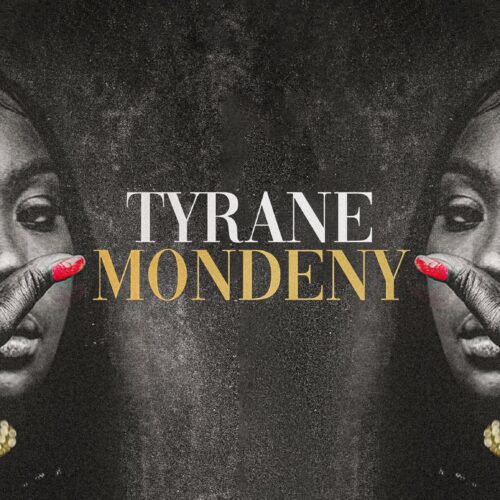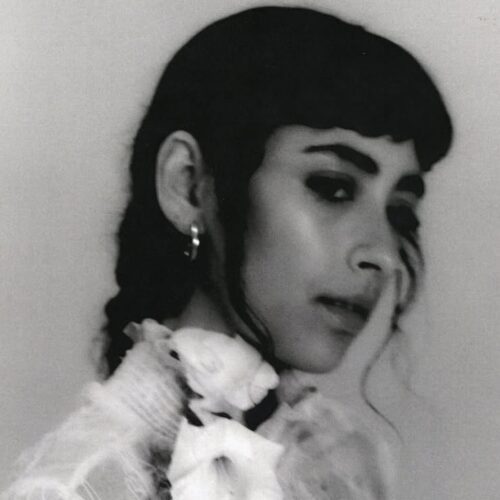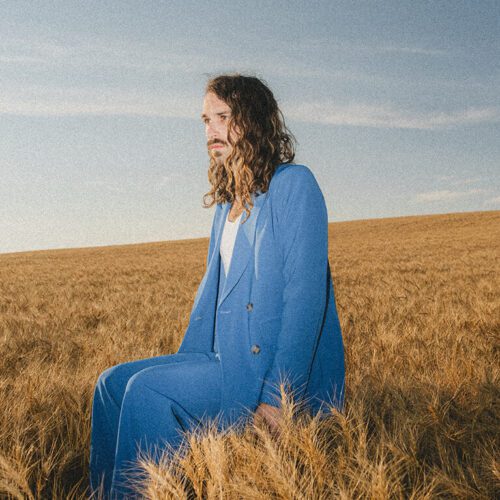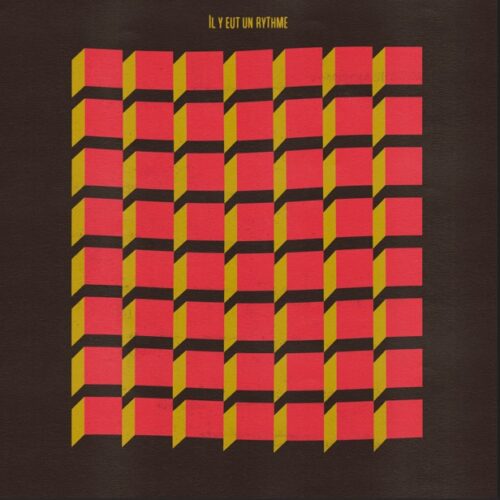Additional Information
SARAH ROSSY (she/they) is a multidisciplinary artist based in Tio’tia:ke/Montréal whose work blends jazz, experimental electronics, and visual projections into ethereal soundscapes that are both autobiographical and socially conscious. In our conversation with Sarah we spoke about her latest release, Seemingly Insatiable Waves, and the obstacles facing the musicians and artists of 2024.
PAN M 360 : Hey Sarah, a big congratulations on Seemingly Insatiable Waves! It’s easy to hear that a lot went into this EP, and I imagine it must feel good to finally let it out.
Sarah Rossy : Oh it feels good, and it was a long time coming! I haven’t released music in a longer form since 2018! And this is the first of many things to come, it’s kind of like my first foray into releasing music again.
PAN M 360 : Well what a time to be releasing music in 2024. I’m finding that with more and more of the artists I speak to, they seem to be more and more uncertain about what a release actually means these days.
Sarah Rossy : Yeah, I mean, it’s a good question. I think we’re all trying to answer it. I decided to release this EP one single at a time, but in a short time span. I think it was within over two and a half weeks that I just dropped a song every four or five days with different visuals, so people could see and hear a little taste of each song.
Things move so quickly these days; the algorithm pumps content down the pipe after like 12 hours sometimes. So by stretching it, I tried to get the most exposure online after all these months and so much money and time put into this. I don’t know if it worked, but it’s definitely scary to release music in the 2020’s. There’s no one way of doing it, there’s a lot of people telling you how to do it, and I just decided to start small with an EP.
PAN M 360 : Would you say then there’s a really noticeable difference in the release landscape between this year and just a couple years ago? All thanks to the algorithm-ification of social media.
Sarah Rossy : Yeah, for sure. I looked at my Bandcamp stats from the last release. And even the number of purchases and streams directly on that app were so different than they are today. Nowadays, you drop releases onto a fast-moving treadmill of content and news and all these other important things that people are taking in. So how do you fit into that?
PAN M 360 : Especially with two ongoing wars these days, with tragedy unfolding every second, reconciling art with social injustice and social media.
Sarah Rossy : It’s scary when the pool in which we’re dumping our art as “content” is a melting pot of algorithmic cacophony. All of the cat photos, all the propaganda, all of the very important global injustice… where do we fit into that? It almost feels inappropriate, but I also feel that mental wellness sourced from art is a radical tool for systemic resistance. I feel guilty for taking up space when major catastrophes and genocides are happening, but if we can’t take care of each other with art, we can’t fight, we can’t push back.
PAN M 360 : That’s a struggle everyone seems to be facing. But at least you seem to enjoy a strong presence in the local arts scene. That must be a good counterbalance to the digital side of things, having a community of artists and collaborators around you.
Sarah Rossy : Oh, it’s essential to have in-person connection through it all. With this EP specifically, they began as songs that I produced with Ableton alone, and then I recorded some real drum/bass parts with real humans. But at the show, of course, we were playing all the parts live, and I adapted the songs to include everyone in the group. That was great, because at the end of the day, music is about connecting with others. We do all this creative, administrative, and marketing work, and it’s like, for what? For me it’s all about connecting with people from audiences to other musicians, and creating a shared experience.
PAN M 360 : Generally themes of self-discovery, self-love, identity, and healing, seem to be a big part of your musicality. Have these themes always been aligned with your musical identity or is it something you’ve started to explore recently?
Sarah Rossy : Yeah, I think it’s been both recovered and uncovered in layers as I’ve grown. I think back to my relationship with music when I was a kid, which was probably universal in a way: I’d go to the piano or any other instrument with a sense of play and curiosity, and express whatever thought or mood was on my mind, and release. It’s always been like that for me, but pursuing formalised music education distorted that channel a little bit. My heart was somewhat swept to the side as I learned tools that stimulated my mind and intellectualised my main channel of expression. That environment sometimes prioritised the technique over the emotional impact or authentic alignment. I am grateful for that time, but it was also traumatic in ways. The process of making this EP was a much-needed return to a pure sense of play and catharsis.
I have also been doing a lot of therapy and a lot of self-work in recent years, which have opened up more channels for understanding myself. My art is a reflection of that. Themes of identity and self-love are very present, and have become very focal points in my lifelong quest to understand my little existence. I hope that doing this work and sharing it through music can offer healing perspectives to people who perhaps don’t have the resources or readiness to do it themselves.
PAN M 360 : Was the pandemic a big shake-up in terms of how it affected your songwriting?
Sarah Rossy : Yes, I lived alone for most of the pandemic, in total isolation. It was me and my piano and my anxiety. And we had a big restructuring of our relationship, me and music. Because, you know, I was alone, couldn’t create with people, and needed to heal from a lot of misalignment from the aforementioned “creative institution” trauma. After many months of being too devastated to play any music at all, I returned to the songs and the songwriters that moved me the most in my lifetime: Joni Mitchell, St. Vincent, Bjork, Fairuz, Yebba… who brought me the deepest comfort and a renewed sense of creation. I also began a deep dive into Ableton and music production, and brought many songs that I had been writing for years into the production world of infinite possibility. I discovered the joy of layering vocals… Like 800 vocal layers are on my record. And they were all just done in my apartment, on the floor at 2AM with a cheap microphone. I also fell in love with sound colour, VST orchestration, and plugins that have now seeped into my live performance practise. The pandemic also forced a confrontation with the self; this space of hyper-solitude made me face a lot of major wounds and themes in my life, and I feel that my songs have reached a deeper level of honesty in the years since.
PAN M 360 : Yeah, well you always have such a lush and rich sonic palette in your recordings. It’s very layered, with a lot of moving parts, and it must help have such a strong community to help see your vision across!
Sarah Rossy : Yeah, I was thinking the other day that over the past six years or so, I’ve planted a lot of creative seeds in cities and communities around the world. And now, it feels like all those things are coming to fruition and there’s ripe fruit on the tree. The global network of creative connection and creation is alive and well! If I’m like “hey, I want an ethereal guitar loop!” I’ll call Kevin Lafleur. He’s also one of my best friends. Or, if I’m looking to produce some interdisciplinary films (not-so-subtle hint of what’s to come), I can ask Camille Huang to artistically direct some creative fusion between the dance and music worlds. Or if I want to book some shows in Europe (where I’ll be in May), I have so many kind friends made over years of residencies and workshops willing to help. Or my VIP collaborator, Jack Broza, who mixed and co-produced the record, whom I met at Banff Centre for the Arts in 2018. We just have fun when we work, playing like kids in his studio in Brooklyn. The EP is under my name on paper, but there’s such an important community of people that were involved in this who offered many shades of support.
PAN M 360 : So as someone from Montreal, do you feel this is the best place to be for your art?
Sarah Rossy : Culturally, it feels pretty aligned here. I really love Montreal, but then again, it’s like marrying your highschool sweetheart or something, because I’ve been here my whole life. But I love New York, and I go there often, but disturbingly, I could fly there once every two months and it’d still be cheaper than living there, and I feel that I even get a more concentrated visit with my time because I’m “off” work. So that’s kind of looking like what my strategy will continue to be. I like to travel a lot; I’m going to Europe two or three times this year, and I go to New York almost every month. So for me, the lovely community here in Montreal, the grants, the amazing creative opportunities, the healthcare… These things entice me to stay put and hop around often, but we’ll see where life takes me.
PAN M 360 : So as an artist in 2024, what would you say your goals are with your art? Are you optimistic or pessimistic about where things might go?
Sarah Rossy : I mean, once I restructured that my goals were to really connect with people above all else, it completely changed the landscape. I’m not trying to get famous. Obviously, fame can be a vessel to more connection. It can also be a vessel to more loneliness, you know? Selling your music can sustain you financially in a capitalist vortex, but who are you selling it to? Are they people who really care about your heart? So this album launch, playing a sold out show to all my friends and community members and people who I care about and maybe their friends one layer out, was so warm and fulfilling. I left the venue (Ursa, an amazing artist-run space) feeling good, and at the end of the day, feeling good is what matters. So like, I’m optimistic in the sense that I’m clear on that, but pessimistic about the overall state of industry. Each musician made $100 that night, and I worked non-stop for three weeks to pump the hell out of the promotion. But I’m trying not to put that financial pressure on my art.
PAN M 360 : I hear you Sarah. We wish you all the best and thanks again for taking the time. Let us know where we can catch you next!
Sarah Rossy : My next show is March 27th at Ursa for the first edition of the Anti-Jazz Police Festival. It’ll be a double bill with Claire Dickson, an amazing artist from Brooklyn, which will be an amazing show. Don’t miss it!
